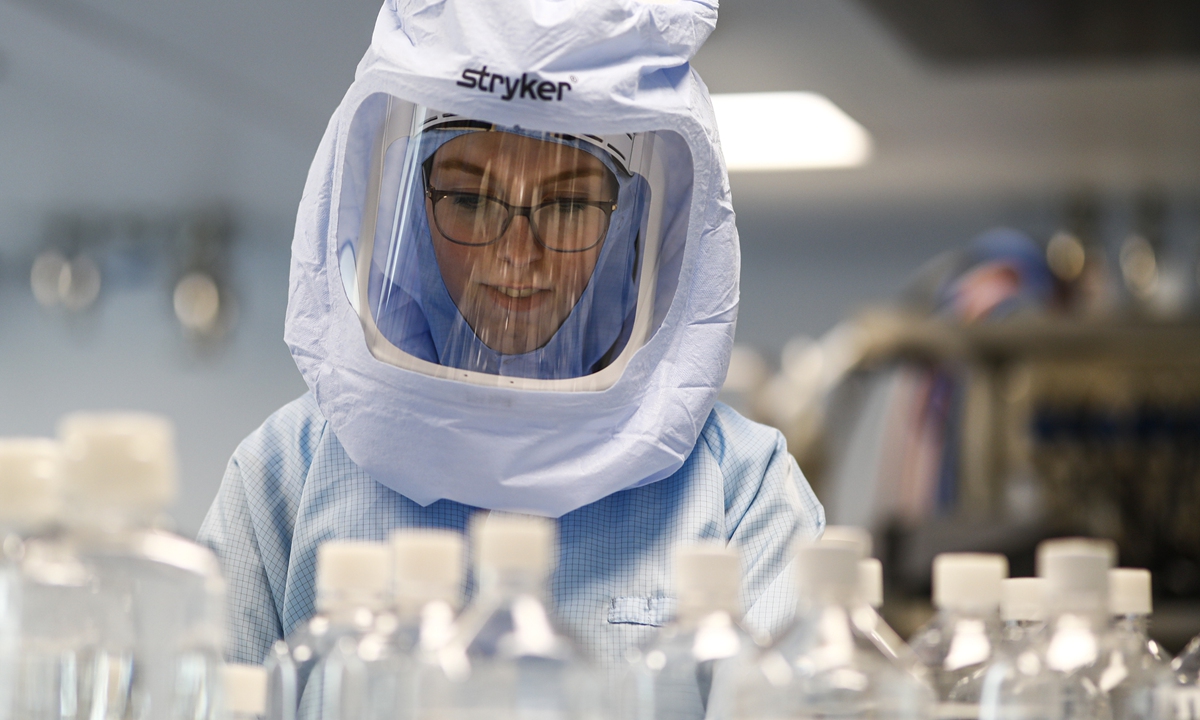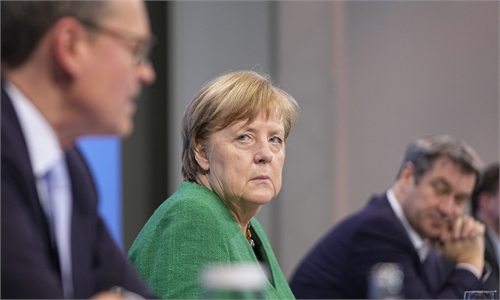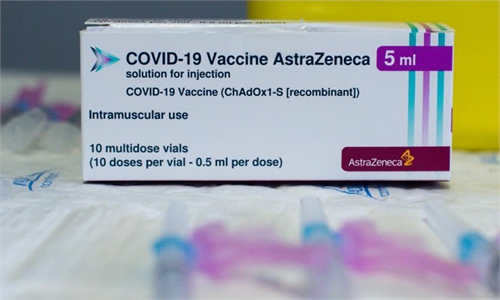Germany will from Wednesday limit the use of AstraZeneca's COVID-19 vaccine to people aged 60 and above as well as high-priority groups following further reports of a rare brain blood disorder.

Acting on advice from Germany's vaccine committee, known as STIKO, Germany's federal and state health ministries agreed that under 60-year-olds should only receive the AstraZeneca vaccine if they belong to high-priority groups, which include high-risk patients and medical workers, in consultation with a doctor.
People aged below 60 who have already received a first AstraZeneca shot have the option of either receiving their second shot as planned, if they are high priority, or waiting for STIKO to issue its recommendation, which it is expected to do by the end of April.
The new limit on the use of AstraZeneca's vaccine is another setback in Germany's already sluggish vaccination campaign.
Earlier, STIKO recommended the shot only be used for people aged 60 and above "on the basis of available data on the occurrence of rare but very severe thromboembolic side-effects."
STIKO is also looking into the possibility of administering a second shot with a different COVID-19 vaccine. In a statement responding to the STIKO recommendation, AstraZeneca said patient safety was its highest priority and noted the European and UK medical agencies had not been able to establish a causal relationship between the shot and clotting.
"We will continue to work with German authorities to address any questions they may have," it added.
Germany will, however, allow anyone 60 and over to be given the AstraZeneca shot in an effort to speed its vaccination campaign. So far, it has only been vaccinating people aged over 70 and those in high priority groups.
Germany's decision followed further reports by the country's vaccine regulator, the Paul Ehrlich Institute, of cases of blood clots known as cerebral sinus vein thrombosis.
PEI said it had registered 31 cases of CSVT, which resulted in nine deaths, out of some 2.7 million people who have received the AstraZeneca vaccine. With the exception of two cases, all reports involved women aged between 20 and 63.
Because use of the vaccine in Germany was initially limited to those under 65, the shot has been administered among younger women, particularly medical staff and teachers.
Many European countries briefly stopped using AstraZeneca's vaccine earlier in March while investigating rare cases of blood clots.
Both the European Medicines Agency (EMA) and the World Health Organization said in March the benefits of AstraZeneca's vaccine outweighed the risks.

Employees in special suits test the procedures for the manufacturing of the messenger RNA (mRNA) for the Covid-19 vaccine in German company BioNTech, in Marburg, Germany on March 29, 2021. Photo: VCG
"We have to be able trust the vaccines," Chancellor Angela Merkel told journalists at a news conference on Tuesday. "And transparency is the best way to deal with such a situation," she added.Acting on advice from Germany's vaccine committee, known as STIKO, Germany's federal and state health ministries agreed that under 60-year-olds should only receive the AstraZeneca vaccine if they belong to high-priority groups, which include high-risk patients and medical workers, in consultation with a doctor.
People aged below 60 who have already received a first AstraZeneca shot have the option of either receiving their second shot as planned, if they are high priority, or waiting for STIKO to issue its recommendation, which it is expected to do by the end of April.
The new limit on the use of AstraZeneca's vaccine is another setback in Germany's already sluggish vaccination campaign.
Earlier, STIKO recommended the shot only be used for people aged 60 and above "on the basis of available data on the occurrence of rare but very severe thromboembolic side-effects."
STIKO is also looking into the possibility of administering a second shot with a different COVID-19 vaccine. In a statement responding to the STIKO recommendation, AstraZeneca said patient safety was its highest priority and noted the European and UK medical agencies had not been able to establish a causal relationship between the shot and clotting.
"We will continue to work with German authorities to address any questions they may have," it added.
Germany will, however, allow anyone 60 and over to be given the AstraZeneca shot in an effort to speed its vaccination campaign. So far, it has only been vaccinating people aged over 70 and those in high priority groups.
Germany's decision followed further reports by the country's vaccine regulator, the Paul Ehrlich Institute, of cases of blood clots known as cerebral sinus vein thrombosis.
PEI said it had registered 31 cases of CSVT, which resulted in nine deaths, out of some 2.7 million people who have received the AstraZeneca vaccine. With the exception of two cases, all reports involved women aged between 20 and 63.
Because use of the vaccine in Germany was initially limited to those under 65, the shot has been administered among younger women, particularly medical staff and teachers.
Many European countries briefly stopped using AstraZeneca's vaccine earlier in March while investigating rare cases of blood clots.
Both the European Medicines Agency (EMA) and the World Health Organization said in March the benefits of AstraZeneca's vaccine outweighed the risks.



